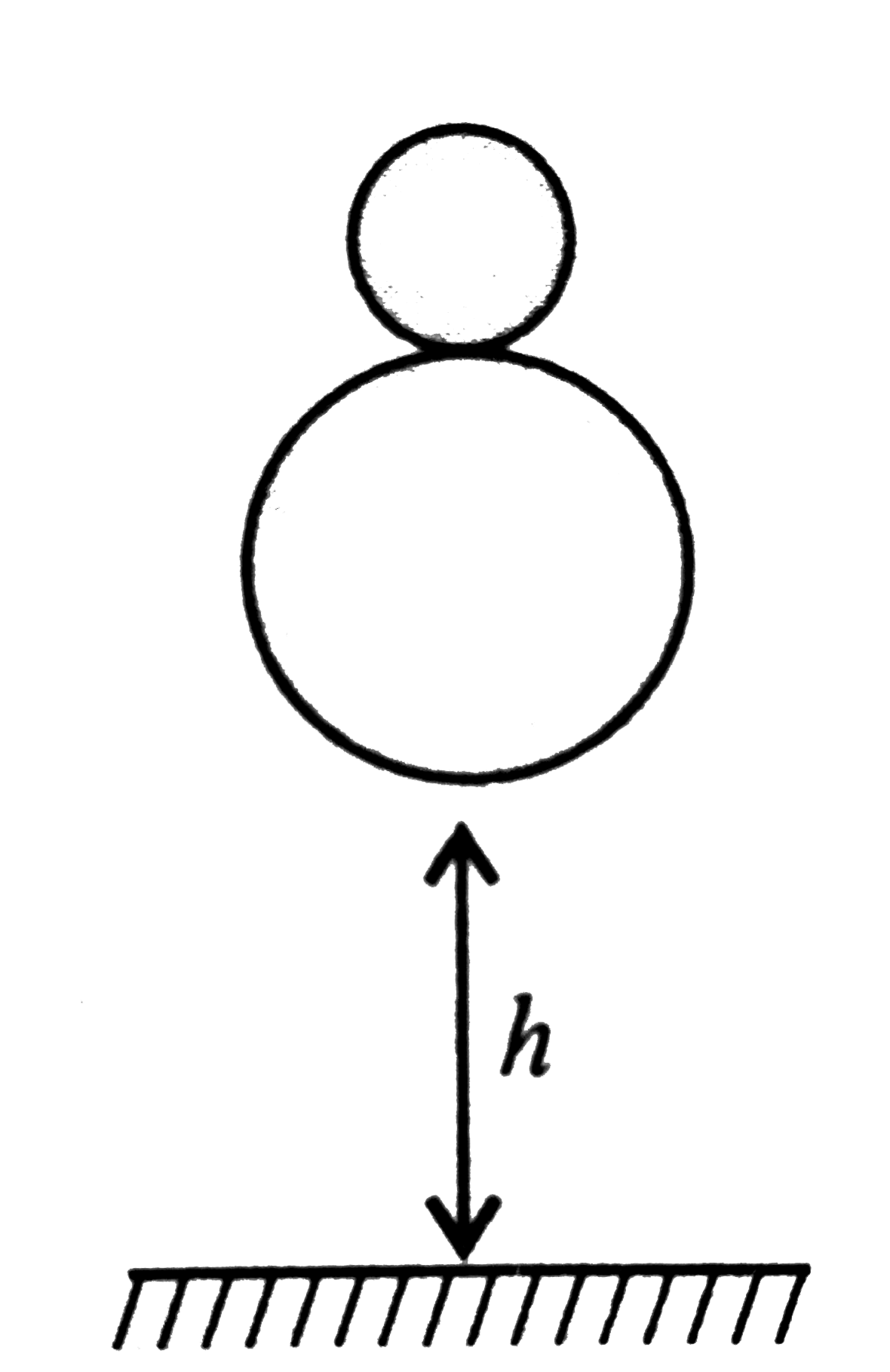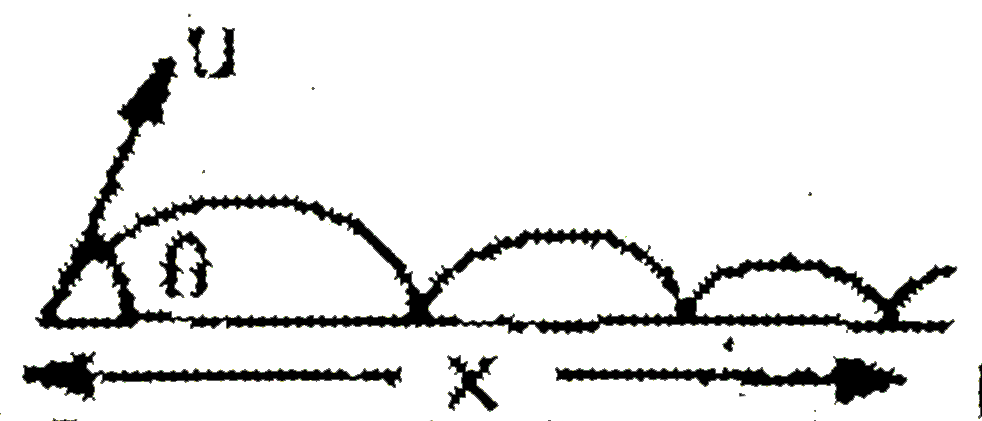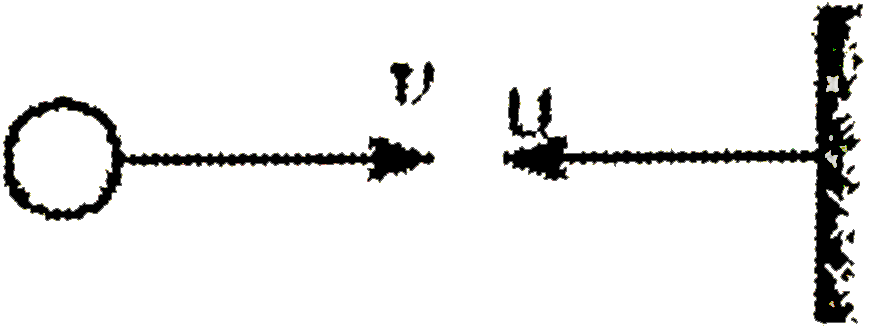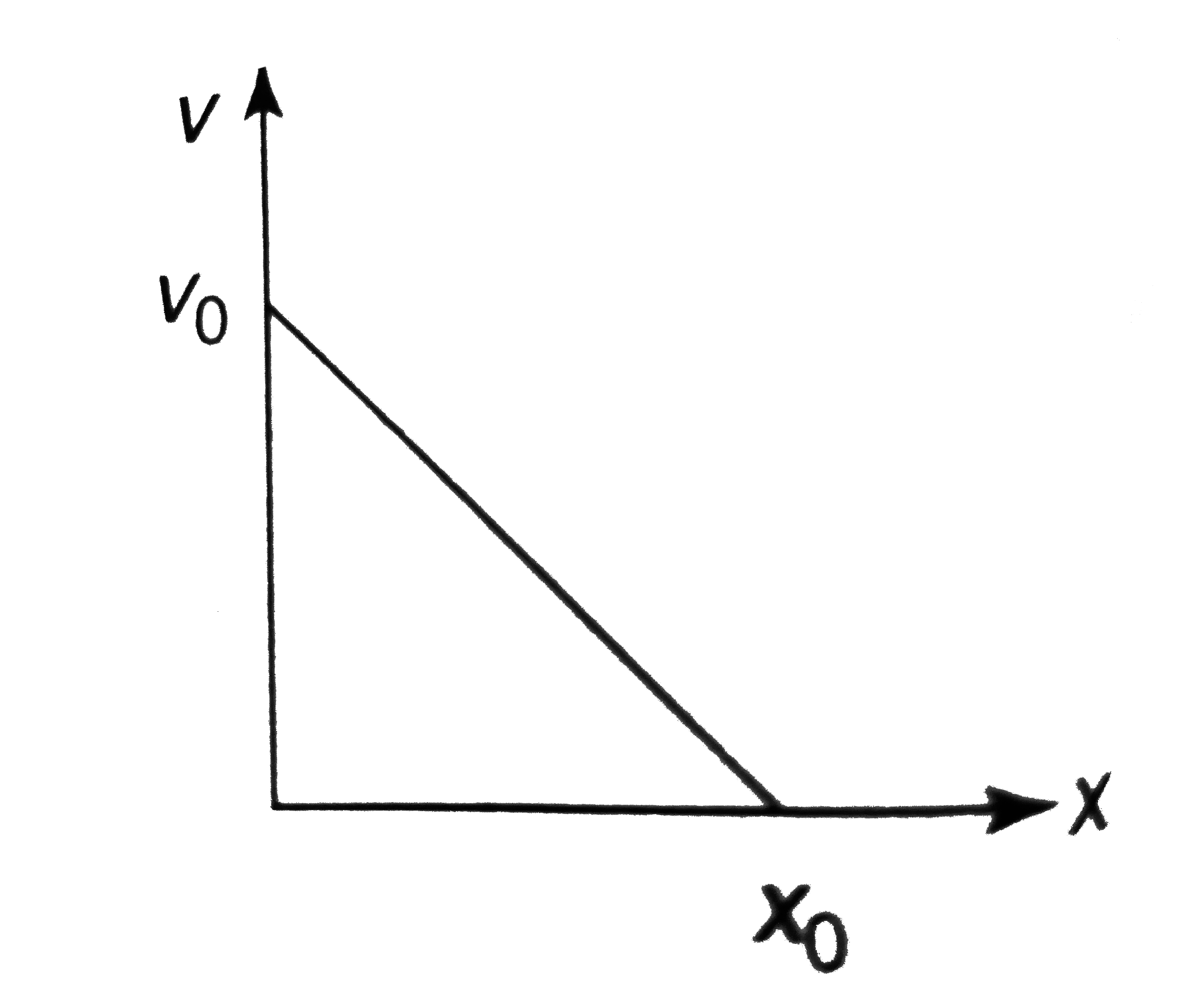consider the acceleration velocity and displacement of a tennis ball as it falls to the ground and bouces back. Derections of which of these changes in the process
velocity only
Displacemetn and velocity
Acceleration, velocity and displacement
Displacement and acceleration
The correct Answer is:B
When a tennis ball falls on the ground and bounces back, its velocity and displacement changes in reverse direction while acceleration remains unchanged.
Topper's Solved these Questions
Similar Questions
A tennis ball with (small) mass m2 rests on the top of a basketball of mass m1which is at a height h above the ground, and the bottom of the tennis ball is at height h+d above the ground. The balls are dropped. To what height does the tennis ball bounce with respect to ground? (Assume all collisions to be elastic and m1>>m2)
 View Solution
View SolutionA ball is thrown vertically upwards from the top of a tower with a velocity of 10m/s. If the ball falls on the ground after 5 seconds, the height of the tower will be? (use g=10m/s2)
View Solution
Knowledge Check
- Question 1 - Select One
consider the acceleration velocity and displacement of a tennis ball as it falls to the ground and bouces back. Derections of which of these changes in the process
Avelocity onlyBDisplacemetn and velocityCAcceleration, velocity and displacementDDisplacement and acceleration - Question 2 - Select One
Assertion: Acceleration and displacement are in the opposite direction during retardation. Reason : Acceleration is given as the change in velocity per unit time.
AIf both assertion and reason are true and reason is the correct explanation of assertion.BIf both assertion and reason are true but reason is not the correct explanation of assertion.CIf assertion is true but reason is false.DIf assertion is false but reason is true. - Question 3 - Select One
A ball is projected with initial velocity u at an angle θ to the horizontal. Then horizontal displacement covered by ball as it collides third time to the ground would be, if coefficient of restitution is e :
 A(1+e)u2sin2θgBeu2sin2θgC(1−e)u2sin2θgD(1+e+e2)u2sin2θg
A(1+e)u2sin2θgBeu2sin2θgC(1−e)u2sin2θgD(1+e+e2)u2sin2θg
A ball moving with a velocity v strikes a wall moving toward the wall with a velocity u. An elastic impact occurs. Determine the velocity of the ball after the impact. What is the cause of the change in the kinetic energy of the ball ? Consider the mass of the wall to be infinitely great.
 View Solution
View SolutionIf x,v and a denote the displacement, the velocity and the acceleration of a particle executing simple harmonic motion of time period T, then, which of the following does not change with time ?
View SolutionA ball is dropped from the certain height on the surface of glass. It is collide elastically the comes back to initial position. If this process it repeated then velocity time graph is:-
View SolutionThe given graph shows the variation of velocity with displacement. Which one of the graphs given below correctly represents the variation of acceleration with displacement ?
 View Solution
View SolutionA tennis ball has a velocity of 12 m/s downward just before it strikes the ground and bounces up with a velocity of 12 m/s upward. Which statement is true concerning this situation?
View Solution

